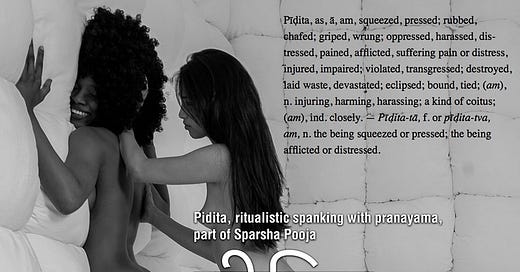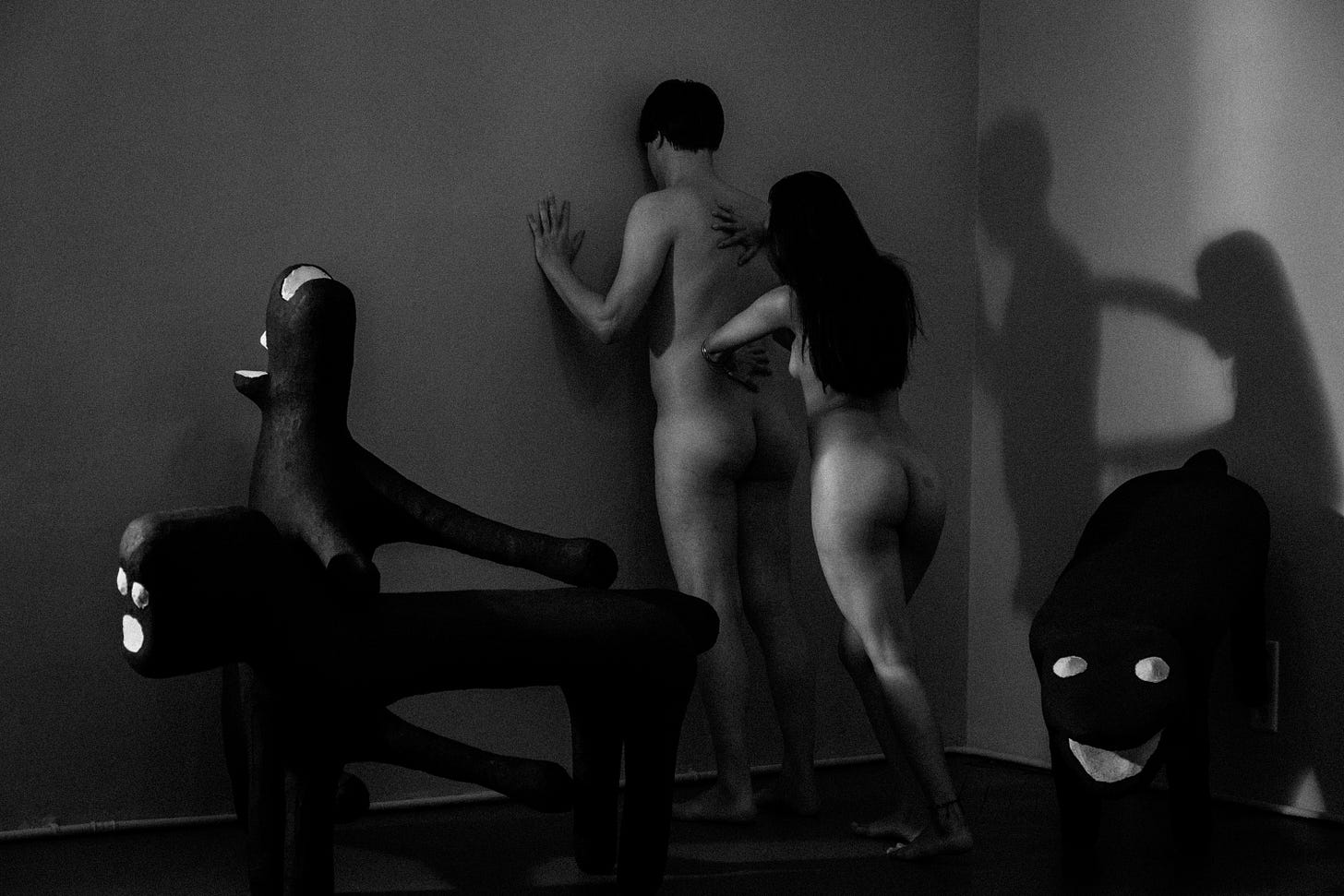Touch and Transcendence: Exploring the Boundaries of Flesh and Spirit
Sprasha Pooja: Unveiling the Intimate Rituals of Connection
After nearly two decades of performing Sparsha Pooja from the Shakta Tradition in my private Sensual Liberation Retreats, I can somewhat summarize it as what it truly is.
Some elements of Sparsha Pooja are derived from the Kamasutra, amalgamated with Pranayama and metaphysical healing movements.
At first glance, Sparsha Pooja seems like an anthropological study on humanity itself. When we analyze human behavior and the love language of our species, how would we describe the different stages of love and desire in a performance theater? How could we understand each other as a species better if we practiced Sparsha Pooja in sacred high school classrooms? How many divorces could we prevent, and how many marriages would become unnecessary because Sparsha Pooja provides us with so much insight, love, and affection that after the ritual, your longing seems fulfilled? Sparsha Pooja is one of the more accessible Tantric Rituals from Forbidden-Yoga.com. However, the more years I have practiced it with hundreds of different people, I always discover a new detail, a new revelation.
It’s very hard to explain how Sparsha Pooja works, so I asked an AI to explain it as if Henry Miller were writing, and I fed the AI with my original manuscript. I can't paste the manuscript here because Sparsha Pooja is only available inside our Sensual Liberation Retreats…
When the AI brain of Henry Miller rewrites Tantric Sparsha Pooja
In the catacombs of our modern sanctuaries, we gather not to seek refuge from the tumultuous sea of existence but to dive headlong into its most profound depths. This practice, this ritual of Sparsha Pooja Upasana, is a ballet of the soul, a symphony of fingers and flesh, where each touch is both a question and an answer.
Sprishtaka – Here we stand, poles apart, yet bound by the invisible thread of our gaze. We advance, slow as the setting sun, breathing with the heavy, deliberate sorrow of the condemned man. Kapalabhati, they call it, as if by naming it one could tame it. For quarter hours that stretch like eons, we orbit each other, drawn inexorably closer without ever making contact. This dance is one of deliberate discomfort, a challenge to the very notion of ease.
Hashtaka – Next, the touch. Oh, the sacrament of touch! Our hands, trembling emissaries of our starving souls, reach out. Slowly, agonizingly, we explore the alien landscape of another's fingers. The same breath, thick and charged with the electricity of forbidden temples, fills our lungs and fuels our courage.
Viddhaka – One lies prostrate, a willing sacrifice to the altar of our desires, while the other explores with hands that shake with the power of creation. It is not a massage; this is the cartography of a continent unseen, each fingerstroke a declaration of intent, a whisper on the winds of fate.
Udhrishtaka – Now comes the spider's turn, hovering, omnipotent, its eyes unblinking and all-seeing. Beneath it, the other breathes the slow, steady rhythm of the storm yet to come. They exchange roles, the observed becoming the observer, the toucher touched, in this eternal game of give and take.
Gharṣātaka – Side by side, we lie, our bodies a tangled vine of limbs. Here the touch transcends, becomes a friction, a fire that could burn us to cinders were it not for the breath that keeps us tethered to the earth. We rub, not merely skin on skin, but soul on soul, each movement a prayer for more life.
Piditaka – In the final act, one is pressed against the unyielding stone, the wall not of our making but of our choosing. The slaps come, sharp and clarifying, a punctuation to the sentences written by our writhing bodies. Only the pressed breathes the ritual breath, for they alone bear the weight of the moment.
The Pooja closes not with a whimper but with a crescendo of senses unleashed. We perform our rituals of touch, recite our holy verses of skin and breath, and finally, lay down to dream of worlds beyond this one. We are the dancers and the dance, the prayers and the gods to whom they are whispered. In our temple of touch, we find not solace, but the sublime truth of our existence laid bare.







Angie is beatifull